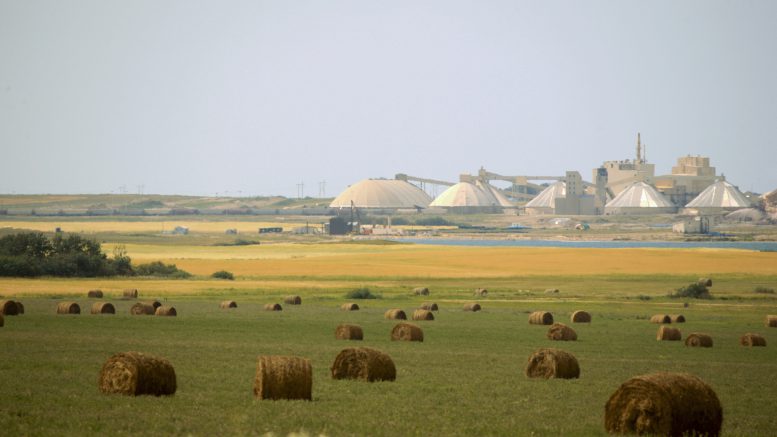U.S. markets fell last week after the U.S. Federal Reserve increased its benchmark interest rate by 75 basis points and Fed chairman Jerome Powell said talk of a pause in rate hikes to control decades-high inflation was “very premature.”
The Dow Jones Industrial Average fell 458.58 points or 1.4% to 32,403.22 and the S&P 500 dropped 130.51 points or 3.35% over the week to 3,770.55.
Potash producers were among the hardest hit mining stocks over the week, apparent victims of too much of a good thing: high prices. Intrepid Potash, the biggest potash producer in the United States, fell the most, down 20% to US$36.21. Saskatoon, Sask.-based Nutrien, the world’s largest fertilizer maker, dropped 11% to US$73.29.
High prices for potash are the result of lower global supplies because of sanctions against Russia and Belarus, the number two and three producers after Canada, respectively. North American farmers, hit by high inflation that is also raising costs for other inputs such as diesel, reduced their fertilizer buying. That is hurting sales at both companies, which reported third-quarter results last week.
“During the third quarter, we saw a temporary reduction in potash purchasing in North America and Brazil, which has impacted our sales volumes and realized prices in the second half of the year,” Nutrien president and chief executive officer Ken Seitz said in a release accompanying the results.
Bob Jornayvaz, Intrepid’s executive chairman and chief executive officer, also noted in comments with Intrepid’s results that “the second half of 2022 has been slower than we previously expected.”
Both CEOs said they expected the market to remain constrained by limited supplies and they lowered their sales projections this year, while forecasting a rebound in sales next year. Nutrien said it would expand its Canadian potash output by 20% by 2025.
Southern Copper was among the leading gainers for the week, adding 14% to end at US$53.70 after rival Chinese-controlled MMG said it would reduce output from its Las Bambas copper mine in Peru. Local Indigenous peoples have blockaded the mine, reducing supply into an already tight global market.
Southern Copper also benefited from signals that China will ease its strict Covid-19-fighting policy, freeing up demand for industrial metals. Cohorts such as Vale and Rio Tinto also gained on the developments, adding 14% and 10% to close Nov. 4 at US$14.39 and US$58.34, respectively.
And investors priced in calls by aluminum maker Alcoa and others for the London Metal Exchange to ban Russian metals from trading on the platform. Traders fear LME warehouses will become stockpiles of sanctioned material, while a ban would buoy prices. So far, the LME hasn’t agreed to delist Russian companies.


Be the first to comment on "US markets fall in the week ending Nov. 4"